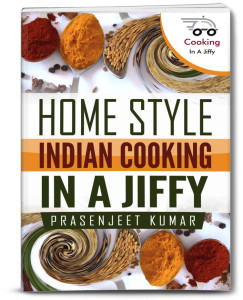Three Things That All Self-Published Authors can Learn From Abraham Lincoln
- By Prasenjeet
- December 21, 2014
- 1 Comment
I keep hearing some self-published authors cringing and whining all the time about how difficult it is to pursue a career as a writer. Sure, many are passionate about what they write, yet they are willing to give it all up after a year exclaiming that “the chances of success as an indie author is relatively low.”
Others become obsessively focussed on results.
“I paid sites for advertising my book but I got only 40 sales in two days!” complain some.
And then there is the third type who will tell you that it is better to be an accountant or a consultant than a writer. Such types have obviously not witnessed or experienced for themselves the downsides of a day job, including what it is like to work with autocratic bosses and annoying colleagues.
Let me admit that I am not completely free from this mind-set.
But let me come back to the things that all authors can learn from Abraham Lincoln. Why Abraham Lincoln, you might ask? Surely, he was one of the greatest Presidents America ever saw. But there was more to him than just that.
Abraham Lincoln had a great knack for self-learning: I stumbled upon this story when I was doing research for my next motivational book.
Abraham Lincoln was his own guru. He was born in poverty with very little schooling. Yet Lincoln did not make his poverty an excuse to run away from education. His father could barely read and write. His mother was a little better, so Lincoln’s first teacher was his mother.
Other children used to practice writing on paper but there was no paper in Abraham’s house. So he practised writing and maths at the back of a wooden spoon using charcoal as his pencil. Lincoln mastered grammar, language and expression all by himself. He learnt maths, including geometry and trigonometry, again totally on his own.
He practised public speaking in front of his friends and diligently studied Shakespeare. He even once told a student to “always bear in mind that your own resolution to succeed is more important than any one thing.”
During his lawyer days, he would meet up with his friends in the evening and engage in story-telling contests. He was considered to be a self-taught lawyer who read and re-read Blackstone’s Commentaries till he understood them thoroughly.
He also learnt the trades of boatman, merchant, clerk, postmaster, surveyor, in addition of that of a lawyer, before he was elected as a U.S. Congressman in his thirties.
Author Jennifer Kahnweiler calls Abraham Lincoln a “geek” meaning someone who possessed deep knowledge about a subject. Lincoln was the most sought after Patent and Copyright lawyer in Illinois.
He later on in his career as a President acquired the skills and deep knowledge about voting behaviour. He had a firm grasp of voting patterns, turnouts, and trends.
No wonder Abraham Lincoln was one of the greatest leaders to walk on this Earth.
If you have to succeed as a self-published author, therefore, commit yourself to a life of self-discipline and self-learning.
I started my career in early 2013 as a blogger. I first pursued web designing as a hobby. I found online courses at no cost on a site called Alison.com which taught me basic html, wordpress, setting up an email list, engaging on social media, etc. I started running a blog known as cookinginajiffy.com with my mom’s recipes.
Some of my social media friends told me that I write well. This opened up a possibility to pursue a writing career. At that time I did not know that I could self-publish and sell books on Amazon. But soon I learnt how I could do that on Amazon and other platforms without the need to approach any traditional publisher.
I wrote my first book in about three months. I was apprehensive about e-book formatting but easily found a dearth of YouTube videos that taught me to how to do that properly.
Since then I have never stopped learning and never looked back. Internet provides us with up-to-date, and mostly free information so there is no excuse whatsoever not to learn. At least in that respect we are better off than Abraham Lincoln!
Book sales are not within your control but self-learning certainly is.
But let us come back to Lincoln and focus on some other of his traits which are relevant to authors.
Abraham Lincoln had a never give-up attitude: He lost his mother (due to a disease called milk sickness) when he was a young boy. He lost a job, failed in business twice, was defeated in elections eight times, became bankrupt and incurred a debt which took nearly seventeen years to be repaid, suffered a nervous breakdown and was bed ridden for six months and he had to deal with the loss of the woman he deeply loved (Anne Rutledge). The list of his failures do not end here and if I were to list all of them, I am sure they would run into pages.
Yet the biggest lesson one can take away from this narration is that Abraham Lincoln never quit. He could have very easily considered himself “unlucky” or that he was destined to fail. But Lincoln did not let his destiny dictate his actions, instead he dictated his own destiny.
Food for thought: It is very easy to “quit” but how about making “persisting” a habit?
Abraham Lincoln was passionate about his work: He had a clear vision. He sincerely believed that he had a purpose to fulfil.
“Every man is said to have his peculiar ambition,” he wrote once. “I have no other so great as that of being truly esteemed by fellow men, by rendering myself worthy of their esteem.”
Lincoln acted out of deep commitment and passion for his work rather than showing his might as the President of the United States. His lifelong motivation was to eradicate slavery completely from his country once and for all. Lincoln could convince others only because he believed in his own noble cause himself.
He was not after power or money. “His speaking went to the heart because it came from the heart,” as was reported by Horace White. Lincoln’s passion for his work and compassion for others made him stand out as a great benevolent leader.
Food for thought: Are you passionate about your work?
I would love to hear your story. How did you end up being a writer? What did your “other” career, if you had one, teach you? Were there any highs and lows? Was there any time when you thought you should quit but didn’t?
Regards,
Prasenjeet
1 Comment
Leave a Reply Cancel reply
This site uses Akismet to reduce spam. Learn how your comment data is processed.


































Lincoln acted out of deep commitment and passion for his work rather than showing his might as the President of the United States.